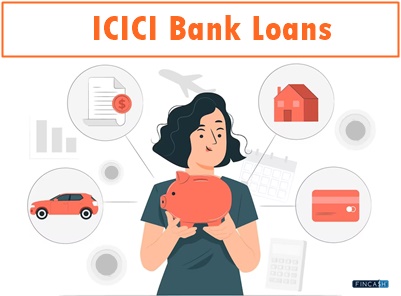
Table of Contents
A Detailed Guide to Home Loan
Don’t let your dream home just be a fantasy. Being a house owner of a beautiful home is something everyone wishes for. And, therefore, most people opt for loans. A home loan or housing loan means a sum of money is borrowed from a financial institution to purchase a house. Usually, it consists of an adjustable or fixed interest rate, which varies from Bank to bank.

Generally, home loans attract higher interest rates with long tenure, but there is a way where you can invest and save money to buy your dream home. SIP is one of the best saving tools to accomplish your financial dream. Here, you invest first, earn good returns and fulfil your goals.
Types of Home Loan
1. Land purchase loan
Land-purchase loans are given by both banks and non-banking companies (NBFCs). It is offered to an individual who wants to purchase a plot or land to construct a home. Banks lend loan upto 80-85% of the land or plot price..
2. Home-purchase loan
Home purchase loans are utilized to buy residential property. The lenders usually provide up to 80-85% of the Market value of the house as a loan amount. The interest rate of the loans is either fixed, floating or hybrid.
3. Home construction loan
Financial institutions issue home loans to an applicant who wants to build a house on an open land, which is owned or co-owned by the applicant. The home construction, loan application and approval process are different in certain aspects than the other common housing loans. This includes:
- The plot or land should be bought within a year.
- The borrower must make a rough estimated cost, which will be incurred for the construction of the house.
- If the total cost of the plot is not included in the loan amount, then the estimation for the construction of the house will be taken into consideration.
4. Home-extension loan
Home extension loans are taken by individuals who want to expand their house. Few lenders differentiate this loan based on the purpose of the expansion of the current house. Most banks consider this loan as a part of their home-improvement loan.
5. Home-improvement loan
Home improvement loans are taken to renovate their own house. The renovation includes repairs to an existing house, painting of the walls, digging a bore well, electrical wiring, waterproofing, etc.
6. NRI home loan
This is a specialized home loan, which helps the NRI to buy a property in India. The aspects of the NRI home loan are similar to the regular home loans, but there is a lot of paperwork.
7. Home conversion loan
Existing home loan warriors who want to move to the other property can avail a home conversion loan to buy a new house.
Talk to our investment specialist
Home Loan Interest Rate
The interest rates on home loans vary bank to bank. The SBI bank offers home loan @7.20% p. a, which is lower interest rate as compared to other banks.
Check and compare the home loan interest rate and processing fees from the top lenders.
| Lenders | Interest Rates | Processing Fees (exclusive of GST) |
|---|---|---|
| Axis Bank | Up to 9.40% (linked to RLLR) | Up to 1% of the loan amount (min Rs. 10,000) |
| Bank of Baroda | 7.25% onwards (linked to RLLR) | Up to Rs. 50 lakh: 0.50% of loan amount (Min. Rs. 8,500 & Max. Rs.15,000). Above Rs. 50 lakh: 0.25% of loan amount (Min. Rs. 8,500 & Max. Rs. 25,000) |
| Bajaj Finserv | 8.30% onwards (linked to BFlFRR) | For salaried individuals: Up to 0.80%. For self-employed individuals: Up to 1.20% |
| Bank of India | 7.25% onwards (linked to RLLR) | 0.25 % of loan amount (Min. Rs. 1,500; Max. Rs. 20,000) |
| Canara Bank | 7.30% onwards (linked to RLLR) | 0.5% (Min. Rs. 1,500; Max. Rs. 10,000) |
| Central Bank of India | 7.30% onwards (linked to RLLR) | 0.50 – 1% of the loan amount |
| Citibank | 7.34% onwards (Linked to TBLR) | Up to 0.40% of the loan amount |
| DBS Bank | 7.70% onwards (Linked to RLLR) | Up to Rs. 10,000 |
| Federal Bank | 8.35% onwards (Linked to RLLR) | 0.50% of the loan amount (Min. Rs. 3,000; Max. Rs. 7,500) |
| HDFC Bank | 7.85% onwards (Linked to RPLR) | Up to 0.5% of the loan amount or Rs. 3,000, whichever is higher |
| ICICI Bank | 8.10% onwards (Linked to RLLR) | 1.00% – 2.00% of the loan amount or Rs. 1,500 (Rs. 2,000 for Mumbai, Delhi & Bangalore), whichever is higher |
| IDBI Bank | 7.80% onwards (Linked to RLLR) | Rs. 2,500 – Rs. 5,000 |
| Kotak Mahindra Bank | 8.20% onwards (Linked to MCLR) | Up to 2% of the loan amount |
| Punjab National Bank | 7.90% onwards (Linked to RLLR) | 0.35% of loan amount (Min. Rs. 2,500; Max. Rs. 15,000) |
| State Bank of India | 7.20% onwards (Linked to RLLR) | 0.35% – 0.50% of loan amount (Min. Rs. 2,000; Max. Rs. 10,000) |
| Standard Chartered Bank | 9.16% onwards | Up to 1% of the loan amount |
| YES Bank | 8.72% onwards (Linked to 6-month CD Rate) | 2% of the loan amount or Rs. 10,000, whichever is higher |
Home Loan Interest Rate - Fixed vs Floating
A loan against the property is secured, which you can avail against your residential or commercial property. The loan is secured with the tenor of up to 20 years. But you will have to choose between the floating and fixed interest rates.
What is Floating Interest Rates?
A Floating Interest Rate varies from the market scenario. If you go for a home loan with a floating interest rate, then it will be subjected to a base rate and floating elements will be added. If the base rate changes, then the floating rate will also vary. The best thing about floating interest rates is they are cheaper than fixed interest rates.
What is a Fixed Interest Rate?
A fixed interest rate is a fixed rate charged on liability, such as loans or mortgages. It is applied to the entire term of the loan or just a part of the term. But it doesn’t fluctuate with the market and remains the same.
A fixed interest rate avoids the risk of loans, which can significantly augment over time. The interest rate can be higher than the changeable rates. Most of the borrowers are likely to opt for fixed-rate during the period of low-interest rates.
Home Loan Eligibility
The eligibility for a home loan varies from banks to banks. But the common age criteria is 18 years old up to 60 years.
The eligibility criteria of the home loans are as follows-
- Age- 18 to 60-65
- Eligible Salary- Rs.20000
- Work Experience- 3 years and above
- Business stability for self-employed- 5 years and above
- Minimum CIBIL Score- 650
- Maximum loan on property value- Up to 90%
- Maximum EMI as a percent of Income- 65%
Documentation for Home Loan
To apply for a home loan there are some common documents, which are necessary to avail a home loan. The list of the documents are as follows:
- Identity Proof: Passport / Voter ID / PAN/ Driving License
- Residence Address Proof: License / Rent Agreement / Utility Bill
- Residence Ownership Proof: Sale Deed or rental agreement
- Income Proof: salary slip, bank statement
- Job Proof: Appointment letter and validation letter from HR
- bank statement: Past 6 months’ document
- Property Documents: Sale deed, Katha, transfer of ownership.
- Advance Processing Cheque: A cancelled cheque for the validation of a bank account.
Documents Required for Salaried Individual
- Address Proof: Registered Rent Agreement / Utility Bill (up to 3 months old), Passport
- Identity Proof: Passport / Voter ID / PAN/ Driving License
- Income Proof: 3-month payslips, Form 16, Copy of income tax PAN
- Bank Statement: 6 months bank statement to check any EMI paid for outstanding debit.
Documents Required for Self-employed
- Identity Proof: Passport / Voter ID / PAN/ Driving License .
- Address Proof: Registered Rent Agreement / Utility Bill.
- Office Address Proof: Property Documents, Utility Bill.
- Office Ownership Proof: Property papers, Utility Bill, Maintenance Bill.
- Business Proof: 3 years old Saral Copy, the Company Registration License.
- Income Proof: Latest 3 years Income Tax Returns including calculation of Income, Profit & Loss Account, Audit Report, Balance Sheet, etc.
- Bank Statement: Past 1-year bank statement.
- One passport size colour photograph.
Documents Required for Senior Citizens
- One passport size colour photograph
- Identity Proof: Passport / Voter ID / PAN/ Driving License
- Address Proof: Registered Rent Agreement / Utility Bill
- Age Proof: PAN Card or Passport
- Income Proof: Pension Returns or Bank Statement
Tax Benefits on Home Loan
An individual can reduce the Tax Liability, especially those who are serving home repayment. Checkout certain tax benefits related to home loans -
Section 80C: Deduction upto 1.5 lakh on principal repayment
One can claim the tax Deduction up to Rs. 1.5 lakh under Section 80C for the repayment of the principal component of home loan, which is availed for the purchase or construction of the residential property.
Make sure that the construction of the property should be completed within 5 years. In case the property is sold or transferred within 5 years, then tax deductions claimed so far would be reversed.
Section 24B: Deduction up to Rs.2 lakh on interest repaid during pre and post construction period
The interest repaid on a home loan comes under two categories pre-construction and post-construction. Tax deduction up to Rs. 2 lakh can be claimed under section 24B of the Income tax Act. If there is any let out property, then there is no upper limit for claiming the interest deduction. Remember to claim the deduction an individual can claim in which the construction of the house is completed.
Most of the people avail home loan for purchasing an under-construction property where they receive possession of at a later date. Such borrowers can claim tax deduction under section 24B of interest paid during the pre-construction period for up to 5 years. Remember that the maximum amount can be claimed remains covered at the overall limit of Rs 2 lakh per year, which includes pre and post-construction interest repayment.
Section 80C: Deduction for stamp duty and registration charges
You can claim tax benefits on stamp duty and registration charges. These charges can be claimed within the limit of Rs 1.5 lakh under section 80C. You can claim these deductions in the year in which the expenses are incurred.
FAQs
1. What is the tenure of home loan?
Home loans are long-term borrowing instruments with a minimum tenure of five years to 30 years. The tenure offered to you is based on factors like loan amount, type of loan, Credit Score, and so on.
2. What is the eligibility criteria for home loan?
Mostly self-employed, salaried individuals, professionals with regular income can apply for a home loan. An individual must have a minimum age of 21 years and maximum 65 years of age. Apart from the age, minimum income levels are considered for the home loans, which differ from one lender to another.
3. How many joint borrowers can join for a home loan?
The maximum number of joint borrowers for a home loan is six, in which only family members such as parent, sibling, spouse can be the co-borrower for the home loans.
An Alternative of the Home Loan- Invest in SIP!
Well, home loan comes with higher interest rates and long tenure. The best way to accomplish your dream home is by Investing in SIP (Systematic Investment plan). With the help of a sip calculator, you can get a precise figure for your dream home from which you can invest a fixed amount in SIP.
SIP is only the easiest and hassle-free way to achieve your Financial goals. Try now!
Speed-up your Savings to Buy Dream House
If you are planning to fulfil a certain goal, then a SIP calculator will help you to calculate the amount you need to invest.
SIP calculator is a tool for investors to determine the expected return of the SIP investment. With the help of a SIP calculator, one can calculate the amount of investment and time period of investing requires to reach one's financial goal.
Know Your SIP Returns
All efforts have been made to ensure the information provided here is accurate. However, no guarantees are made regarding correctness of data. Please verify with scheme information document before making any investment.












